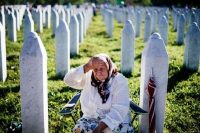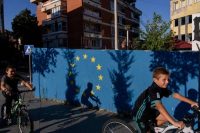
El futuro de la ampliación de la UE en los Balcanes Occidentales
¿Cuál es el futuro de la ampliación de la UE en los Balcanes Occidentales?
ResumenEl proceso de adhesión a la UE de los Balcanes Occidentales está atascado por la “fatiga de la ampliación”, por la “fatiga balcánica” (desilusión) y por la presencia de Rusia y de China, que cada día cobran mayor influencia en la región. La asunción de la Presidencia europea por Eslovenia podría ser una oportunidad para reinventar el proceso de adhesión, sin renunciar a la estrategia de “palo y zanahoria”, pero incluyendo mayores incentivos a los países balcánicos.
Análisis Introducción: la fatiga europeaEl próximo 1 de julio Portugal cederá la Presidencia de la UE a Eslovenia, que la ejercerá por segunda vez desde su adhesión a la Unión en 2004.… Seguir leyendo »









